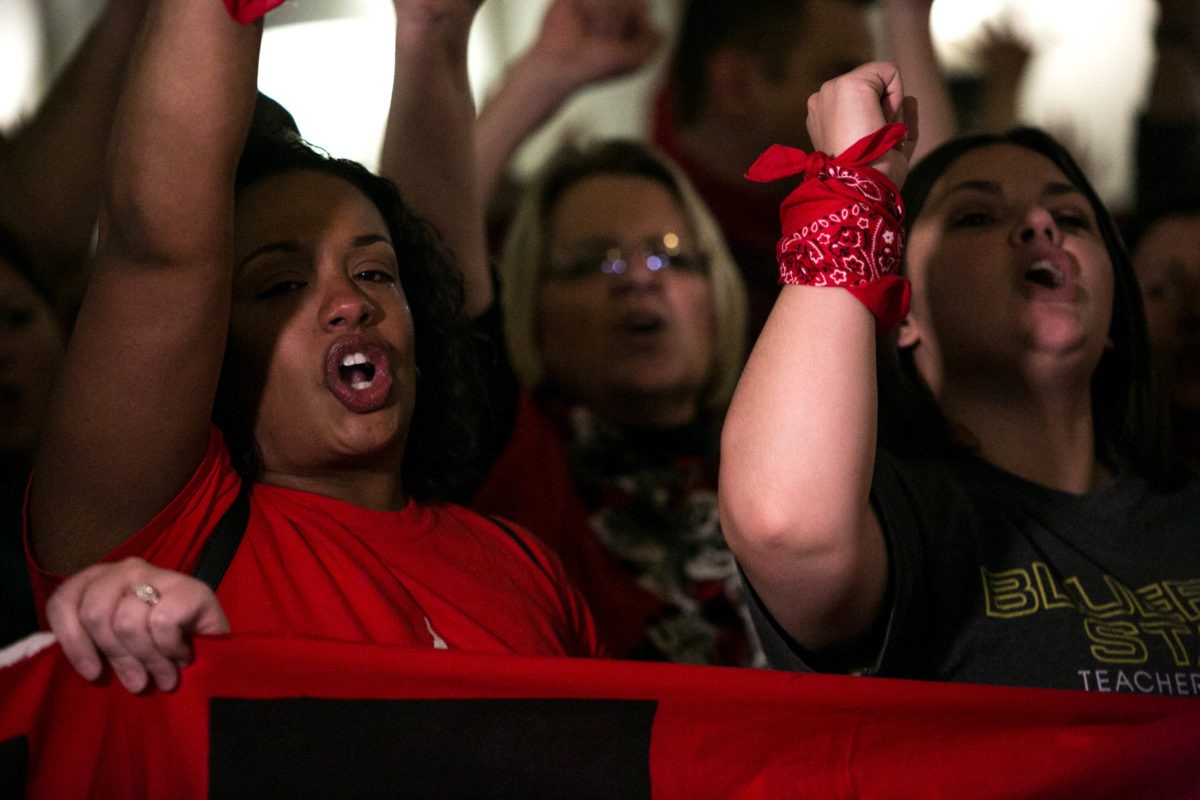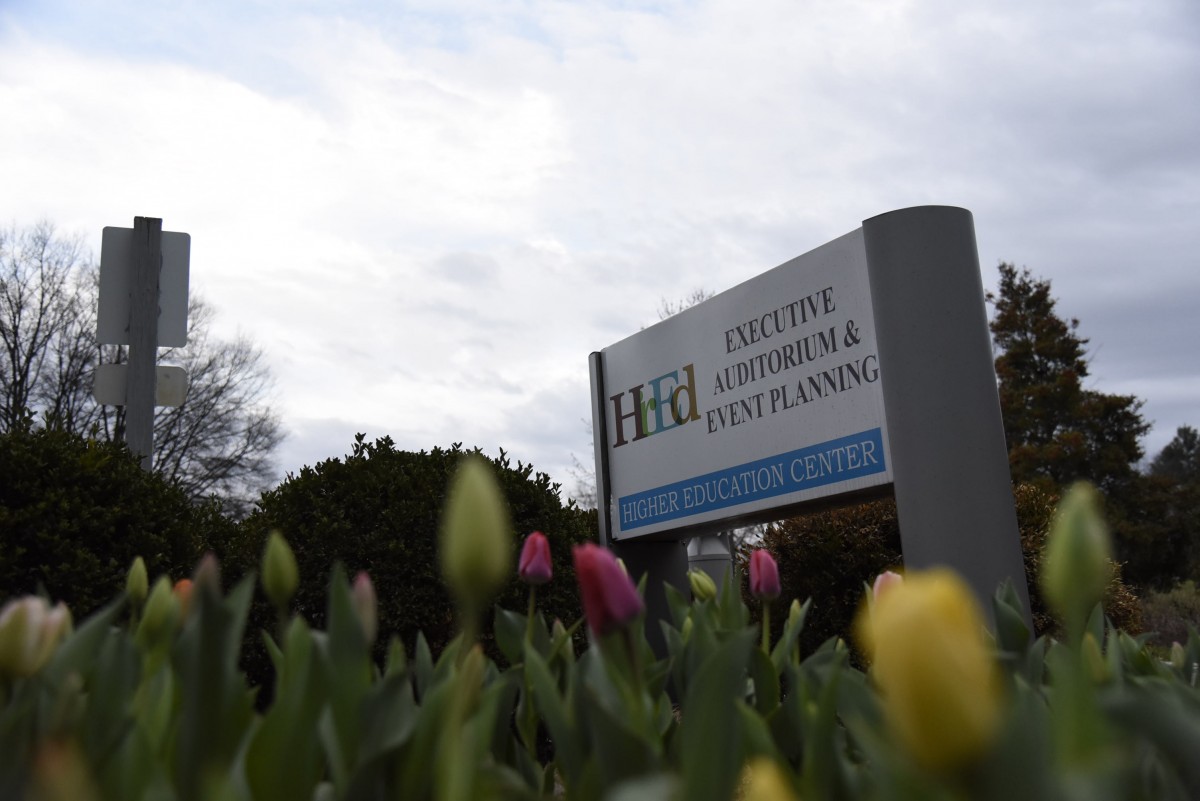Attorney Janice Craft still remembers the praise the Project for the Empowerment of Survivors (PES) received shortly after the legal assistance initiative started offering its services.
Craft said PES, a new project run by the non-profit Virginia Sexual and Domestic Violence Action Alliance, helped a domestic violence survivor find a lawyer who could navigate a protective order hearing, as well as a custody and visitation dispute.
“(The survivor) said this project has been a light in the darkness for her,” Craft said. “I just thought that was a really beautiful thing to hear.”
Craft said PES is part of a “growing movement” to address the justice service gap facing domestic violence and sexual assault survivors. In Appalachian states like West Virginia, North Carolina and Virginia, advocacy organizations are building their own teams and networks to provide the legal help that many survivors can’t afford. Some domestic violence coalitions have had legal assistance programs for years; others are looking into hiring an in-house attorney so they can take on the cases legal aid can’t tackle.
“Anyone who’s facing a form of violence, their whole life is thrown out of order. They’ve probably got some credit issues; they may have housing issues or employment issues,” said attorney Caitlin Bradley, who also works with PES. “These survivors are experiencing multiple legal issues at the same time.”
In rural regions like Appalachia, survivors already face sizeable obstacles to leaving a violent relationship. Rural abusers are more likely to use weapons; intimate partner violence is more likely to end in homicide. Domestic violence shelters and health centers can be impossible to reach without reliable transportation. According to a study published by the Public Library of Science, rates of hospitalizations sparked by intimate partner violence were 14 percent higher in Appalachian counties when compared to non-Appalachian counties.
When survivors do leave their partners, the legal system often becomes just another weapon in the abuser’s artillery, North Carolina Coalition Against Domestic Violence legal and policy director Amily McCool said.
Proceedings like divorce are handled through civil courts, so domestic violence survivors aren’t afforded an attorney like they would be in a criminal court case. Additionally, civil cases where domestic violence is involved can quickly become complex and time consuming. Custody hearings can drag on for weeks and months, and a survivor’s immigration status can be dragged into the proceedings as well. If an officer charged both the abuser and victim during a domestic violence incident, the survivor can be burdened with a criminal record. McCool said North Carolina’s coalition has started an expungement project to tackle that issue in the Tar Heel State.
“There’s already an inherent power balance between the abuser and the victim, and when you add in that the abuser is more likely to have council, oftentimes the victims have a really rough time of it,” McCool said.
Farming out cases
Domestic violence coalitions frequently partner with legal aid services in the state to meet the needs of survivors. But since legal aid offices use income to determine which cases to take, survivors that don’t qualify may still be left without any options. To overcome that barrier, some domestic violence coalitions have taken to recruiting lawyers who will take on cases pro bono. North Carolina’s coalition, for example, offers continuing education training to lawyers on a yearly basis. In exchange, those lawyers agree to work at least one case for free.
“We maintain a list of the names of folks who attended and try to farm out cases to them,” McCool said. “But there’s not really a way to paper enforce it other than ‘Hey, you said you’d do this.’”
At Action Alliance, Craft said PES has built a network of close to 30 attorneys who have agreed to take on pro bono cases. Most of those, however, are in central Virginia. Craft said the agency is hoping to expand that network to more rural areas soon.
In the Mountain State, West Virginia Coalition Against Domestic Violence team coordinator Joyce Yedlosky said it’s not uncommon for only one or two private lawyers to serve a rural county. That makes it nearly impossible to find attorneys who are willing to take on pro bono work.
“You run into issues there of attorneys being spread too thin,” she said. “Maybe they’ll help initially, but if the case is too complicated — such as appeals or immigration issues — it becomes hard for a pro bono attorney to do that.”
The lack of private attorneys means that legal needs pile up, Yedlosky said. West Virginia’s coalition conducted a survey three years ago to see what legal demands existed among the organization’s client base. The coalition discovered that survivors had an average of 9 to 13 separate needs that could benefit from the expertise of a lawyer.
That huge backlog is part of why West Virginia’s coalition is looking into hiring its own attorney. Yedlosky said she is applying for a grant from the Department of Justice’s Office on Violence Against Women so that the organization can hire an in-house lawyer.
Limited resources
Even when sexual assault and domestic violence coalitions hire in-house attorneys, the help they provide is often limited to a set number of counties. If West Virginia’s coalition is able to secure funds to start its legal program, cases will likely be limited to the four counties the organization serves: Marion, Taylor, Logan and Mercer. Yedlosky estimated that the attorney would likely be able to handle only 30 to 40 cases a year.
The North Carolina Coalition Against Domestic Violence’s program, which has been in operation for three years, has two attorneys who jointly complete about 200 cases each year, McCool said. However, the program is limited to cases in only two of the state’s 100 counties — Orange and Johnston.
“There’s obviously a lot of victims who are not getting representation but we don’t have the capacity to do more than that,” McCool said.
In some cases, coalitions might be able to help a larger number of survivors without entering a courtroom. Bradley said PES is run as a phone-based service, where clients can call Action Alliance’s hotline when they have legal concerns and questions. The hotline has trained advocates who take down basic information about a client’s case. That information is then passed on to either Craft or Bradley, who can then provide legal advice. Since the project launched in late 2017, PES has helped about 250 people, providing everything from a consultation to a connection with an affordable attorney.
“We don’t provide in court representation or help filing documents or anything like that, in part because we’re working with callers from all over the state,” Bradley said. “So we try to provide information and assistance where we can that doesn’t require us to be in person.”
While programs run by advocacy organizations can help victims find legal help they otherwise wouldn’t be able to obtain, these non-profit efforts are restricted by the amount of funding they’re able to collect, either through donations or grants.
McCool said federal and state legislators should dedicate more funds toward helping victims navigate civil matters. That money would have to be earmarked for particularly complicated cases like custody hearings in order to meet the greatest need, she said. If those funds were made available, fewer survivors would have to attempt to represent themselves.
“The folks that work in the legal system often times don’t have the time or are constrained themselves from spending time with pro se folks to explain the process to them,” she said. “They may lose rights to their children. It’s a bad situation when they can’t get representation.”
Tiffany Stevens (@tiffanymstevens) is a print journalist living in Southwest Virginia. Their newsletter, “Happening at Home,” rounds up great reporting from two different cities each issue.



